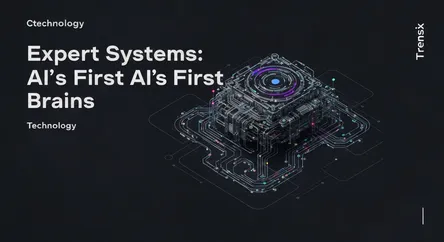Technology
Expert Systems: AI's First Brains

Discover Expert Systems, a classic AI technology that mimics human expert decision-making using a knowledge base and an inference engine.
What is it?
An expert system is a pioneering form of artificial intelligence designed to solve complex problems within a specific domain, emulating the decision-making of a human expert. Its architecture has two primary parts: a knowledge base, which contains facts and if-then rules from human experts, and an inference engine. The inference engine acts as the system's "brain," applying logical reasoning to the rules in the knowledge base to analyze a situation and provide a conclusion or recommendation.
Why is it trending?
While overshadowed by modern deep learning, expert systems are seeing a revival due to their "explainability." Their decisions are transparent and traceable through clear rules, a critical feature in fields like finance and medicine where understanding AI reasoning is mandatory. They are increasingly integrated into hybrid AI models, where machine learning identifies complex patterns and an expert system applies verifiable rules. This creates powerful solutions that are both intelligent and trustworthy, blending data-driven insights with explicit domain knowledge.
How does it affect people?
Expert systems directly impact people by making specialized knowledge more accessible and consistent. They are used in medical diagnostic tools that help doctors, in financial systems that approve loans based on set criteria, and in troubleshooting guides for complex machinery. This automates and scales expert-level decision-making, providing faster and more reliable advice. For organizations, it means preserving the valuable knowledge of senior experts, ensuring that their critical skills can be utilized long after they retire, improving efficiency and quality.